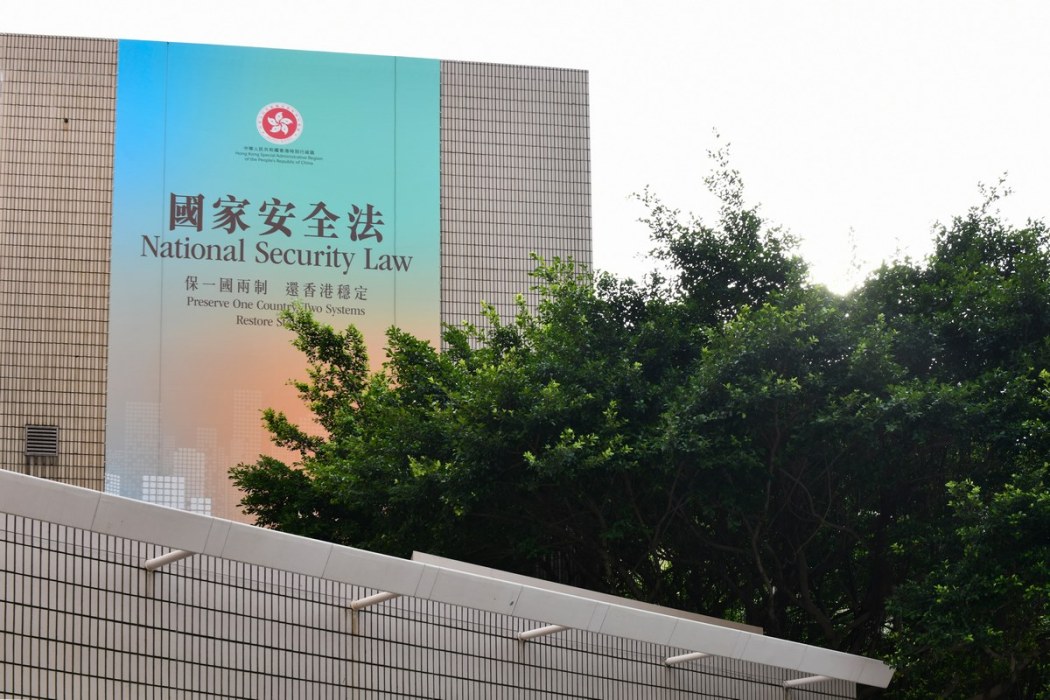There was a reception last month for the “media sector.” This gave a little foretaste of what the media sector is likely to consist of when the national security police have finished pruning it.
Organisers included Patrick Li, who has presided over the obedience training at RTHK, a bigwig from the Ta Kung Wen Wei Media group, and a big cheese from Xinhua. Independent news outlets were not invited and two reporters from such outlets who turned up, supposing the event to be newsworthy, were refused admission.

Carrie Lam addressed the assembled throng as “media friends.” You get the picture.
Ms Lam took the opportunity to repeat a line which has, to put it politely, been getting a bit tired lately. “The national security law,” she said, “targets only an extremely small minority of people that endanger national security.”
Well it is not for us to say what Beijing officials “targeted,” but this formulation obscures the flagrant fact that if it was only supposed to affect an “extreme minority of people,” then the national security law was “targeted” very badly.
The obvious victims of the new law are the unlucky minority who find themselves jailed for months awaiting trial. But it has an effect much wider than that.

Unintended (perhaps) targets include Hongkongers who find their favourite newspaper or website is no longer available, people who find organisations of which they were members or whose services they enjoyed have suddenly ceased operation, people who are eased out of jobs by employers who fear legal liability for something they might say, people who supported regular public events like the June 4th commemoration which will, we may surmise, never happen again.
Many Hongkongers, including me, find that since the national security legislation was passed none of the people we voted for on various occasions are still in office, or indeed still in politics. Government fans are now desperately trying to rustle up some plastic pro-democracy politicos, to disguise the fact that life has become impossible for the real thing.
I am not the only writer who has lamented the effective disappearance of the public sphere, the evisceration of debate, castration of the media, systematic bullying of dissenters. That may not have been the intention of the national security law but it has palpably been its effect.

We are now told by Tam Yiu-chung that local legislation to implement Article 23 of the Basic Law will only affect “a small group of people.” Do you really expect us to buy this lemon twice?
What we are being offered here, in exchange for the freedoms which Hong Kong used to enjoy, is a new narrative of history. In this official version the resistance to the extradition bill was entirely the work of a tiny minority of the population, who had been duped or bribed by the CIA. Everyone else supported the government. This is nonsense.
It has become almost impossible for people to express views critical of the government. Anything which used to be said in the street in 2019 has become a national security offence. Organisations through which non-violent sympathisers could offer support and encouragement have been hounded out of existence. We are told that things have returned to “normal”. Well, returned to what was normal in Stalin’s Russia or Ceausescu’s Romania, perhaps.
If this fantasy is repeated often enough, though, some people will manage to believe it. Perhaps Ms Lam and Mr Tam have already managed to convince themselves that this is the true story.
But if that’s the case, why are they so reluctant to face an audience which has not been purged of potential critics? Even the “media sector” had to be decaffeinated before consumption.
Support HKFP | Policies & Ethics | Error/typo? | Contact Us | Newsletter | Transparency & Annual Report | Apps
| HKFP is an impartial platform & does not necessarily share the views of opinion writers or advertisers. HKFP presents a diversity of views & regularly invites figures across the political spectrum to write for us. Press freedom is guaranteed under the Basic Law, security law, Bill of Rights and Chinese constitution. Opinion pieces aim to point out errors or defects in the government, law or policies, or aim to suggest ideas or alterations via legal means without an intention of hatred, discontent or hostility against the authorities or other communities. |
Help safeguard press freedom & keep HKFP free for all readers by supporting our team

More HKFP OPINION:
HKFP has an impartial stance, transparent funding, and balanced coverage guided by an Ethics Code and Corrections Policy.
Support press freedom & help us surpass 1,000 monthly Patrons: 100% independent, governed by an ethics code & not-for-profit.










